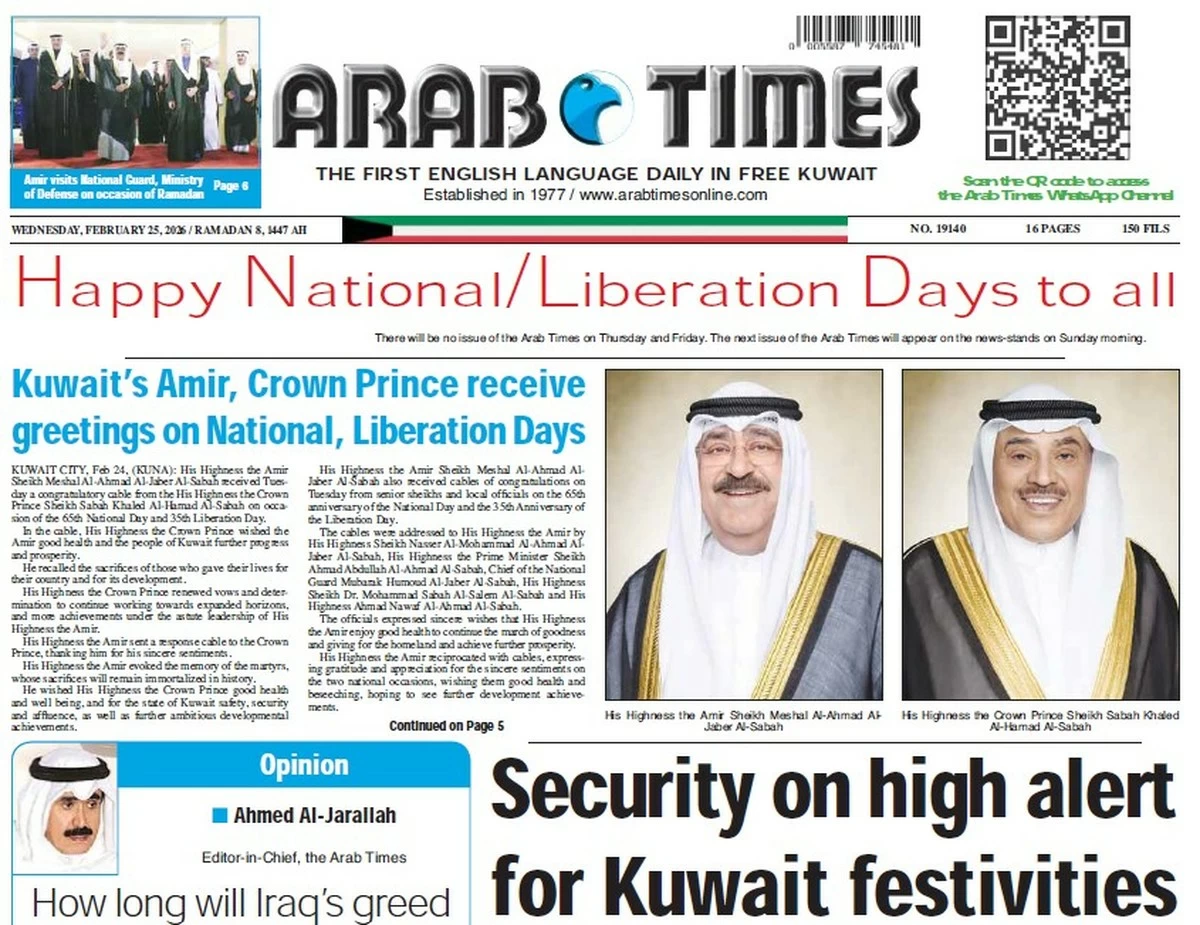09/11/2025
09/11/2025

According to financial analyst and economist Sultan Al- Jazzaf, some observers view this as the early signs of an economic slowdown. However, there is no need for alarm, as all economic indicators, from both the World Bank and local banks, continue to show positive prospects for the Kuwaiti economy. Al-Jazzaf highlighted World Bank data showing that Kuwait’s economy is growing at 2.5 percent and could reach 3 percent by the end of 2025. He said, while consumption by the general population has declined, the most significant development has been an 11 percent increase in government spending, an increase not seen in years, along with improved oil revenues. Al-Jazzaf attributed Kuwait’s current economic growth to the unprecedented economic and legislative reforms underway. The data also indicated a drop in online spending during the first nine months of 2025, amounting to approximately KD 13.11 billion, compared to KD 14.35 billion in the same period of 2024, a decrease of KD 1.24 billion, or 8 percent.
Al-Jazzaf stated that the economic cycle sometimes experiences periods of fluctuation, and the current decline in consumer spending may be temporary, resulting from specific circumstances, changes in consumer behavior, or the saturation of needs and goods. He believes that facilitating tourist, family, and business visits will play a role in boosting consumer spending by the end of this year and into the next. Furthermore, food security consultant and economist Mohammed Al-Furaih attributed the decline in consumer spending in Kuwait this year, compared to last year, to the political situation in the region. He explained that regional wars and crises have affected the economic conditions of many countries, contributing to higher maritime transport costs and, consequently, increased product prices. Consumers generally do not forgo purchasing food items even when prices rise, but they tend to be more cautious with luxury or non-essential goods, such as cars.
Also, economic expert Lawyer Athbi Al-Tahnoon stated that the significant rise in gold prices this year has contributed to a decrease in purchasing power for the majority of consumers. He highlighted that global economic and political conditions have affected not only Kuwait but many other countries as well. Lawyer Al-Tahnoon believes the decline in consumer spending is temporary and is expected to rebound with the implementation of decisions related to foreign investment and other upcoming measures aimed at improving the economic situation.


